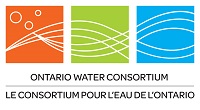The Grand River watershed will soon be home to a living lab where new technologies in water and wastewater will be researched, developed, demonstrated and exported globally, says David Rudolph, professor in the Department of Earth and Environmental Sciences and member of the Water Institute at the University of Waterloo.
The activities are being facilitated through a collaborative partnership known as the Southern Ontario Water Consortium (SOWC).
“We need to be able to hand the watershed to the next generation intact,” Rudolph says.
The consortium brings together researchers from eight universities led by Waterloo, along with three levels of government and innovative water companies. Among its many components, the arrangement gives private firms and university researchers access to various facilities in southern Ontario communities including municipal wastewater infrastructure in Guelph and London, where emerging technologies and research ideas can be evaluated.
Sensors will track ecosystem health
Integrated hydrologic monitoring systems deployed throughout the watershed will provide unprecedented data streams that will be available for SOWC partners to support water management decisions. These sensor networks are linked with advanced water analysis systems and monitoring infrastructure designed to track ecosystem health.
As lead of the watersheds initiative within SOWC, Rudolph coordinates activities within the Alder Creek watershed within the Regional Municipality of Waterloo. The common goal is to make watersheds more sustainable.
Work underway includes:
- A sophisticated data platform enabled with IBM software that will capture data collected by innovative sensor networks. The sensors will be used to monitor the response of the watershed to climate variability.
- Wireless communication of data from remote stations to central transmission centres using advanced telemetry systems. This will allow users to detect hydrologic events upstream on near real-time basis, facilitating timely downstream response as required.
- Development of new municipal wastewater treatment technologies which will allow users to treat wastewater more efficiently and in a more cost effective way with less impact on the watershed.
- The development of new technologies separating clean water from pollutants including pharmaceuticals and nutrients that pose threats to drinking water.
Watershed makes ideal lab
Rudolph says the Grand River Watershed makes an ideal setting for watershed research because it:
- Has about 900,000 residents with expanding urban centres.
- Contains 29 wastewater treatment plants that feed into the Grand River.
- Supports a vibrant agricultural community.
- Is a provincially-designated growth centre.
- Relies heavily on groundwater.
- Faces water supply issues.
- Has a legacy of industrial contamination that threatens water quality.

